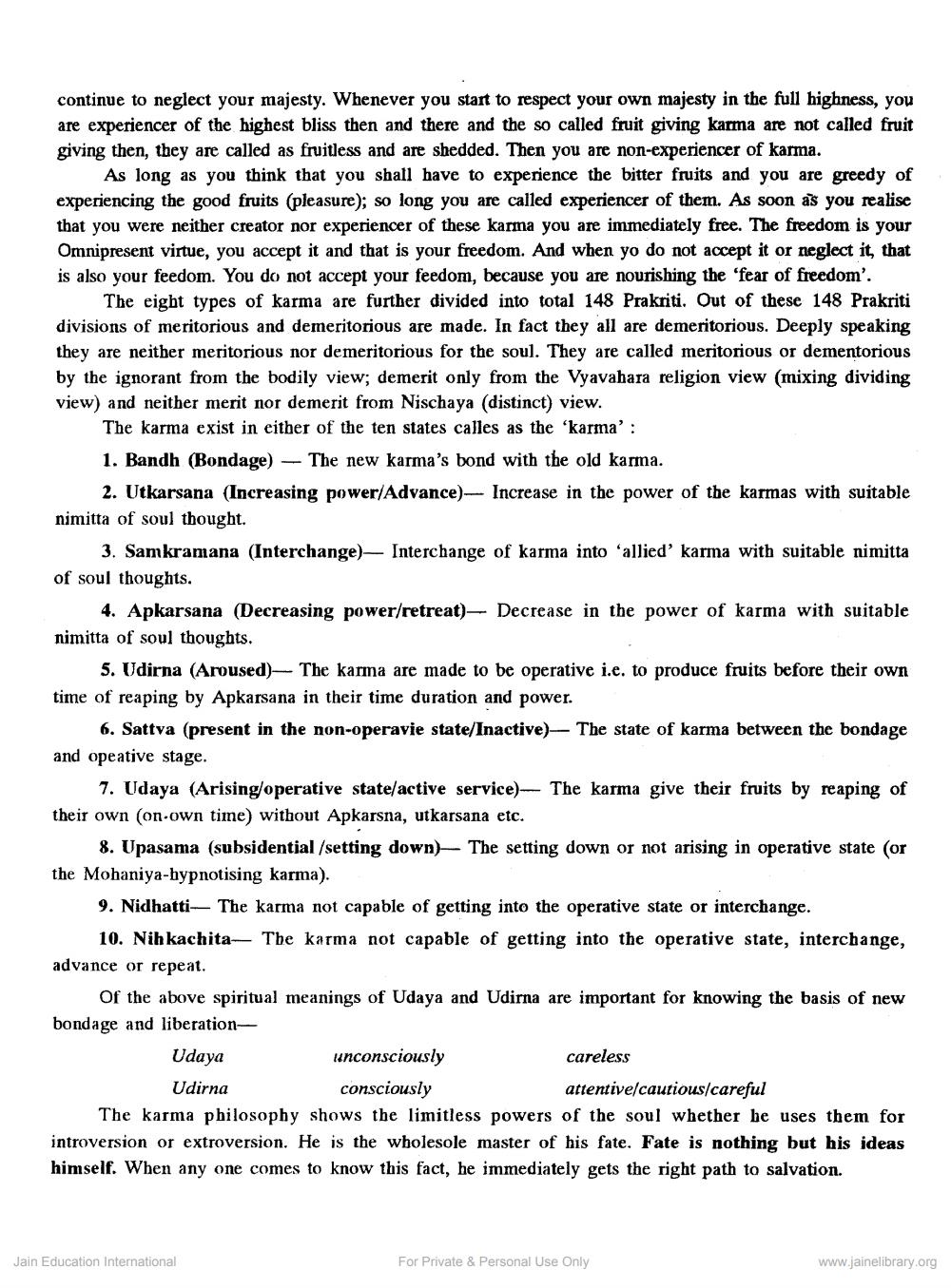________________
continue to neglect your majesty. Whenever you start to respect your own majesty in the full highness, you are experiencer of the highest bliss then and there and the so called fruit giving karma are not called fruit giving then, they are called as fruitless and are shedded. Then you are non-experiencer of karma.
As long as you think that you shall have to experience the bitter fruits and you are greedy of experiencing the good fruits (pleasure); so long you are called experiencer of them. As soon as you realise that you were neither creator nor experiencer of these karma you are immediately free. The freedom is your Omnipresent virtue, you accept it and that is your freedom. And when yo do not accept it or neglect it, that is also your feedom. You do not accept your feedom, because you are nourishing the 'fear of freedom'.
The eight types of karma are further divided into total 148 Prakriti. Out of these 148 Prakriti divisions of meritorious and demeritorious are made. In fact they all are demeritorious. Deeply speaking they are neither meritorious nor demeritorious for the soul. They are called meritorious or dementorious by the ignorant from the bodily view; demerit only from the Vyavahara religion view (mixing dividing view) and neither merit nor demerit from Nischaya (distinct) view.
The karma exist in either of the ten states calles as the 'karma': The new karma's bond with the old karma.
1. Bandh (Bondage)
2. Utkarsana (Increasing power/Advance)- Increase in the power of the karmas with suitable nimitta of soul thought.
3. Samkramana (Interchange) Interchange of karma into 'allied' karma with suitable nimitta of soul thoughts.
4. Apkarsana (Decreasing power/retreat) Decrease in the power of karma with suitable nimitta of soul thoughts.
5. Udirna (Aroused) The karma are made to be operative i.e. to produce fruits before their own time of reaping by Apkarsana in their time duration and power.
6. Sattva (present in the non-operavie state/Inactive) The state of karma between the bondage and opeative stage.
7. Udaya (Arising/operative state/active service) The karma give their fruits by reaping of their own (on-own time) without Apkarsna, utkarsana etc.
8. Upasama (subsidential /setting down) The setting down or not arising in operative state (or the Mohaniya-hypnotising karma).
9. Nidhatti- The karma not capable of getting into the operative state or interchange.
10. Nihkachita- The karma not capable of getting into the operative state, interchange, advance or repeat.
Of the above spiritual meanings of Udaya and Udirna are important for knowing the basis of new bondage and liberation
unconsciously consciously
attentive/cautious/careful
The karma philosophy shows the limitless powers of the soul whether he uses them for introversion or extroversion. He is the wholesole master of his fate. Fate is nothing but his ideas himself. When any one comes to know this fact, he immediately gets the right path to salvation.
Udaya
Udirna
Jain Education International
careless
For Private & Personal Use Only
www.jainelibrary.org




